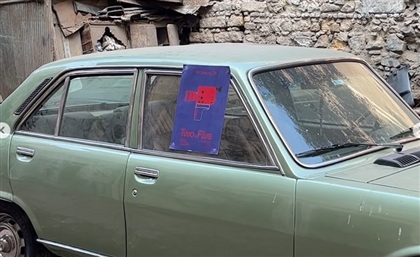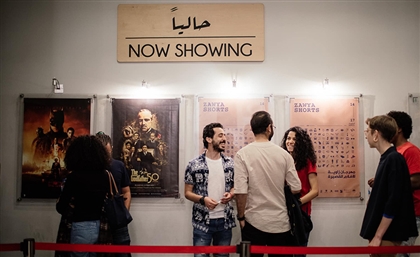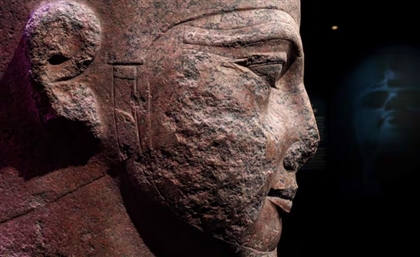Meet the Egyptian Filmmaker Tackling America's Opioid Problem
The drug epidemic is shattering communities in America and all over the world and conventional methods have failed to get to grips with the crisis, Dina Amr decided to use her craft and talent as an award-winning director to create proactive films to address hot-button issues.
Egyptian cinema has been said to be in decline since its golden era. And every so often, we find glimmers of hope in unexpected places, from Amr Wakid killing it in the international scene to Khaled el Nabawy who’s making ground-breaking, award-winning cinema abroad. But what about the Egyptian women who are not only making it but beating Hollywood at their own game.
Dina Amr is a budding new film director working within the indie scene in the US, gaining recognition after directing and producing two masters film projects, Anonymous and Jazz. Her endeavours led her and her team to win the Award of Merit at the IndieFEST Film Awards, Bronze Award at Spotlight Horror Film Awards, and Jazz was even selected in The Short Film Corners in Cannes film festival 2017.
Both films were centred on the US and tackle mental health issues. Anonymous is about a schizophrenic detective who avenges his dead wife and son, while Jazz deals with the topic of addiction; one of America's biggest issues. Through her work, she was able to catapult her name into the lime light while staying true to her art - two polarizing factors in film making.

Defying expectations to craft something unique, while inculcating awareness among people, she is now working on her third project What Happened to Thomas Jefferson? for which she’s currently raising funds. The film tackles the American hot topic of opioid addiction which has reached epidemic proportions worldwide. We caught up with Dina Amr, a filmmaker now set to be the newest addition to our roster of Egyptians succeeding abroad to find out more about her journey.
“Humans are storytelling animals. Everything’s a story, we’re perceiving stories, we’re interested in stories but everyone has their own story to tell – which is why art is personal. With What Happened to Thomas Jefferson? I chose the topic of opioids because it affected me as an individual. Growing up, I’ve seen how addiction has shattered lives of people who were close to me. I questioned it, I wanted to know why they gave in to the drugs, knowing it’ll end tragically. For them and their loved ones,” says Amr.
We’re using comedy to talk about a heavy subject. It is a comedy to help educate about the history of certain drugs
What Happened to Thomas Jefferson? is an innovative update of the traditional ‘addiction is bad' genre symbolized by the Drug Abuse Resistance Education (DARE) campaign and films/infomercials as well as others of that kind. It tells the story of the eccentric chemist Lucy who lost her brother to a heroin overdose. With the help of Nick, her brother’s friend, she creates a new mood-altering drug and begins testing it on patients with depression, PTSD, and chronic pain. But after a chemistry experiment goes awry Lucy and Nick are sent flying through time and space and they meet the scientists, psychologists, gurus, users and abusers who have shaped the history of psychedelic drugs. Will they succeed in changing the history of medicine? We’ll have to wait and find out but we’re already on the edge of our seats.
“We’re using comedy to talk about a heavy subject. It is a comedy to help educate about the history of certain drugs, how they affect the body and the mind. We explore the question, what makes people do drugs in a self-destructive way? The film builds empathy and avoids judgment — it embraces a different tone on drug use and addiction, presenting them as complex social issues rather than personal failings or moral transgressions,” adds Amr.
Amr also talked to me about the reality of her work and her role as a director and scriptwriter - who wears many hats and divides her time between so many duties. "What exactly do you do?" I asked, and half-way through her answer, I realised the perfect response would be everything. “My writing partner and I have a lot of table reads. We gather film professionals and actors and we go through the script, then we discuss it. I know a script is ready to shoot when the audience are able to see the message and made sure it came across clearly. Then we make it happen, with focus on the message, goal, narrative, set up, and characters,” says Amr.
Having earned a sterling reputation for producing some of the most profound new socially conscious projects, as well as provocative narrative films that have more to say than just, "be entertained," Amr has intuitively become a little critical of the nature of cinema. “I believe art is a matter of taste but cinema could be deceiving, and misleading because there is a huge business aspect involved. I’m glad independent filmmaking is giving more room for different stories other than production companies pushing just one idea. I like high concept films that carry a social message and show art and passion. Honestly, the key to success is having the right mind-set: to keep going and growing. I’ll never stop or quit on my dreams,” says Amr.
- Previous Article Egyptian Artist Tackles Depression with his Paint Brush
- Next Article Meet the Egyptian Filmmaker Behind Our First Indie Feature in Cannes
























